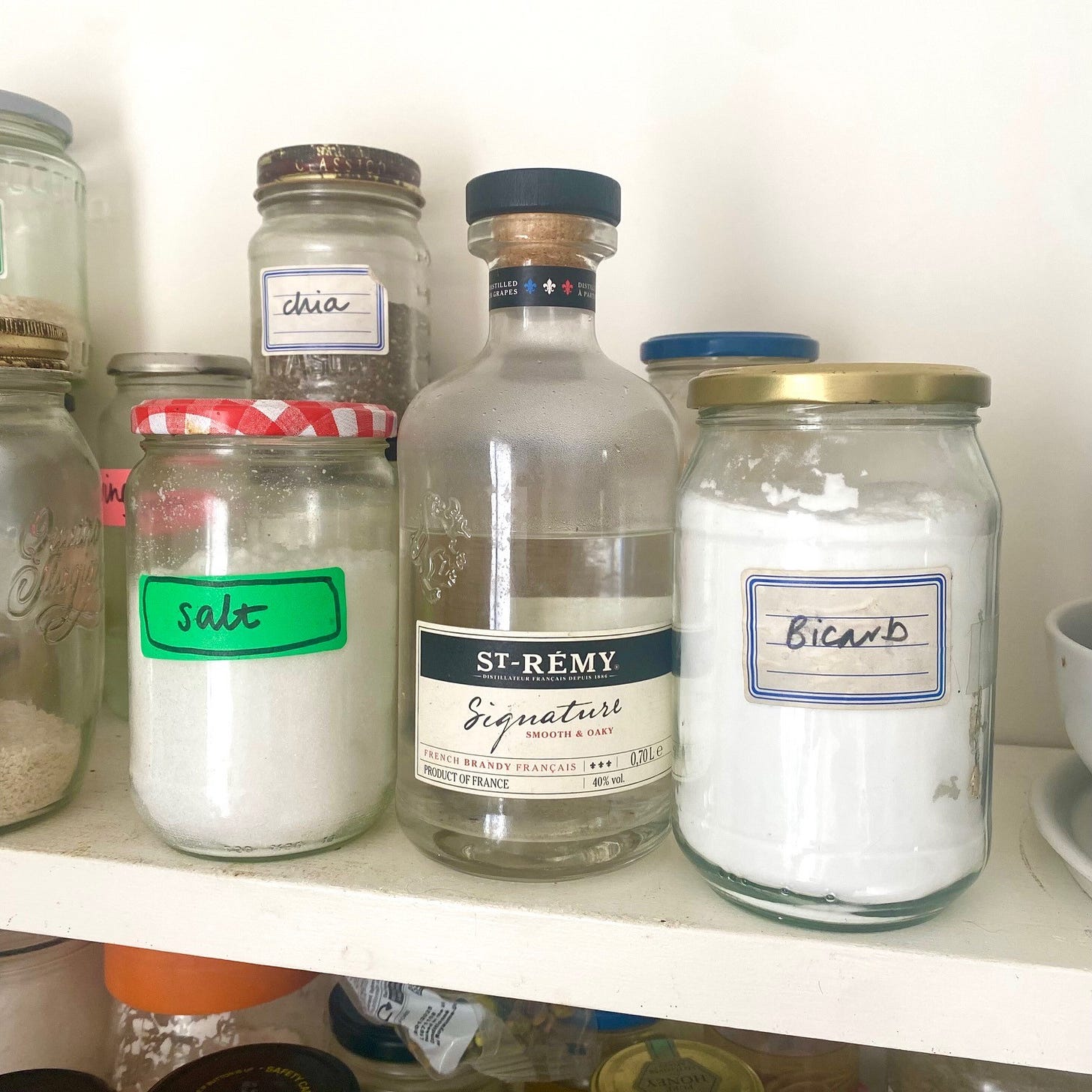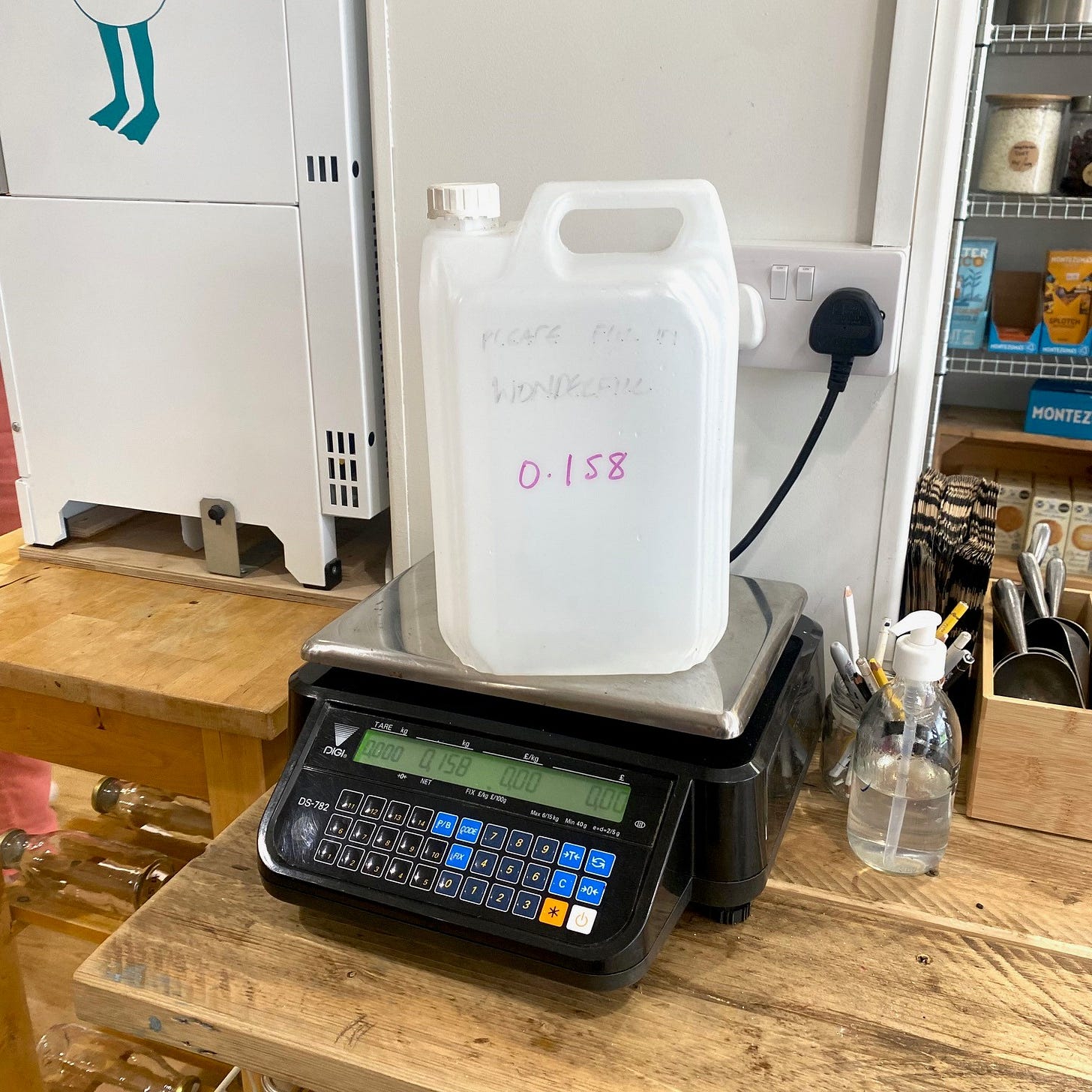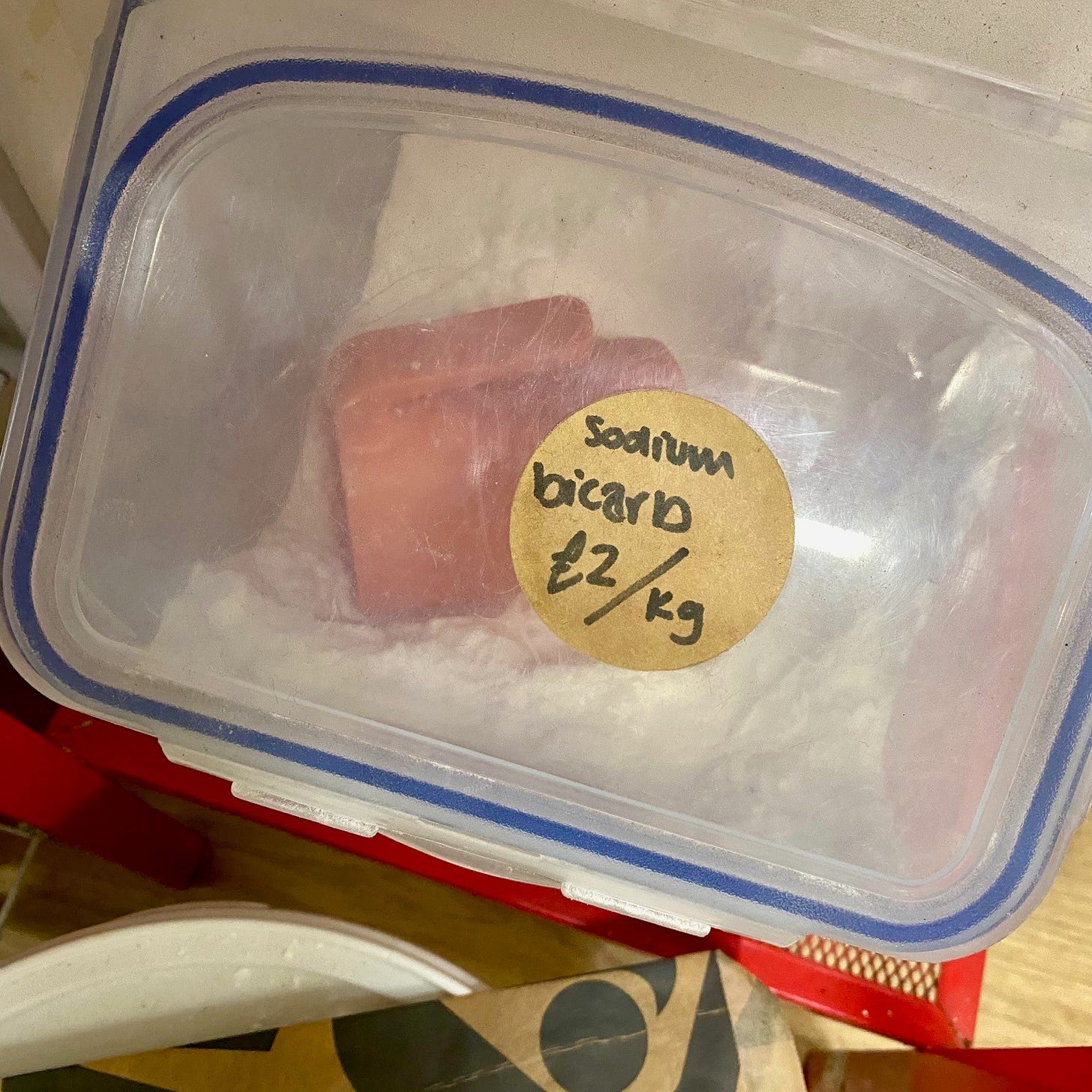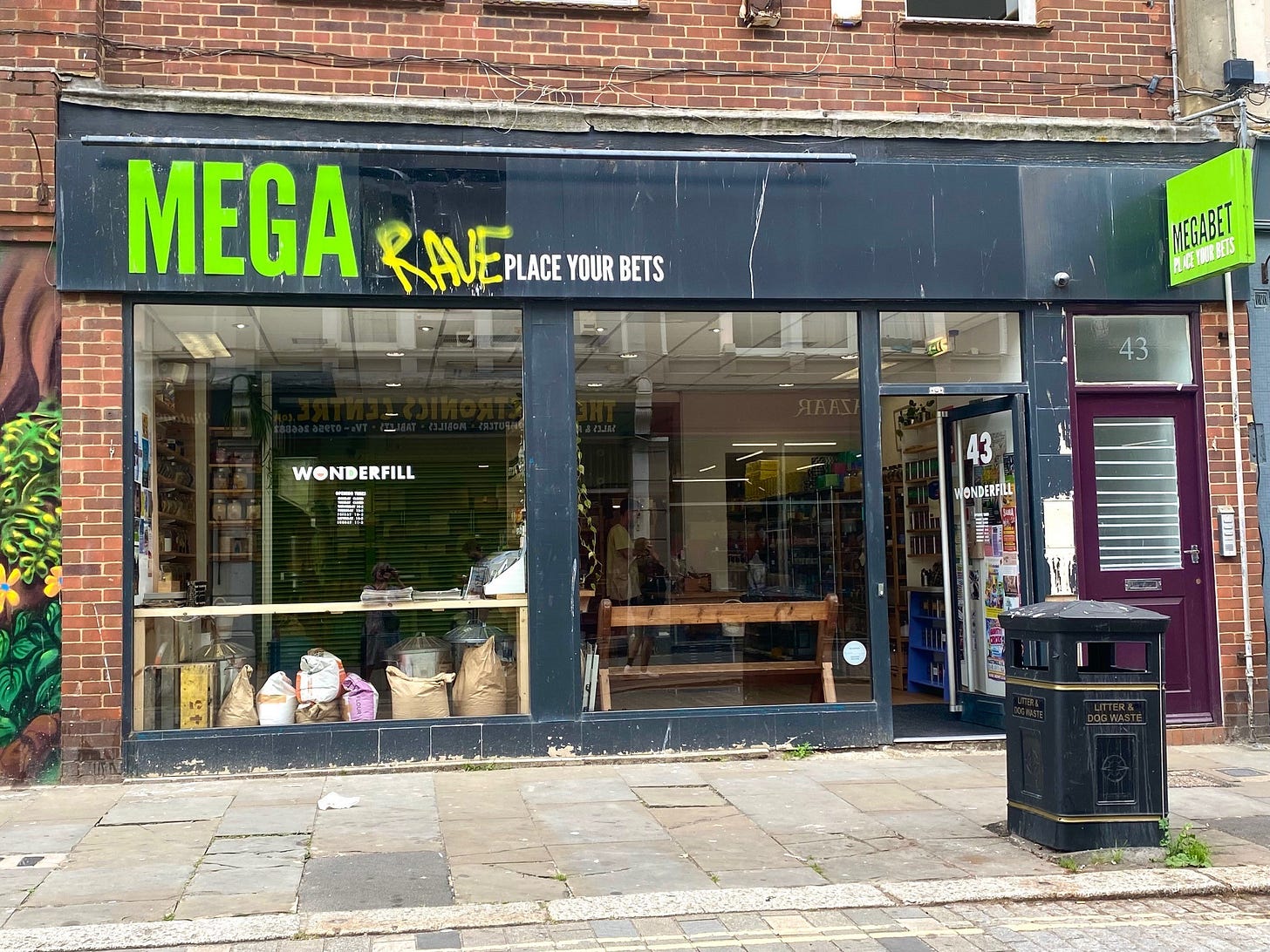
I went into my fridge to see what I had in the veg drawer before heading to the supermarket and was horrified to find how much old and decaying flora was lurking.
There was a quantity of brown slime in the bottom and various veggies at different stages of returning to nature.
So, I took the whole drawer out to sort it – and then saw how yucky the area underneath it was, with caked-on yellow liquid, presumably historic rotting vegetable seepage.
I was going to need to tackle that too.
The food shopping run postponed, I set to with my most trusted cleaning products: white vinegar and bicarbonate of soda.
Armed with those two wonders you can tackle so many household jobs it’s ridiculous. You can find all the applications online, but these are my regular gigs:
· Used together to unclog the bathroom sink drain.
· Vinegar instead of fabric conditioner, with a few drops of lavender oil.
· To get burned-on food off saucepans (including treasured Le Creusets) boil water in them with a tablespoon of bicarb.
· Put bicarb in a soak for fruit and veg, to clear chemical residue (15 minutes is the advice from Zoe and I do it religiously).
The dynamic duo of cleaning worked wonders in my fridge.
First, I chucked in a handful of bicarb and gave the caked-on residue a rub with a damp microfibre cloth, using it as a mild abrasive to loosen the deposits, then I tossed in some vinegar. It fizzed up very satisfyingly and with a few sweeps of the cloth, off came all the cack.
So pleasing.
Once I’d done that area, I realised how filthy all the glass shelves were, so they all came out, with lots of past-best food binned (glass jars washed and put in the recycling). Then it was on to the door shelves, to be cleared and washed.
A wipe down of all the vertical surfaces and my fridge is as good as new.
In fact it looks like one of those spaceship-sized ones you see on TikTok in those weird fridge-stocking clips, where women with long acrylic nails super-neatly fill containers with ultra processed foods packaged in acres of garish plastic.
Although I find them absolutely horrifying for the huge quantity/low quality of food, and the appalling packaging, once I start watching them, I can’t stop.
But while I don’t aspire to the contents of those huge fridges, the immaculate look of them does appeal – and I now have it, achieved without using anything out of a plastic bottle, or tub.
I buy bicarb and vinegar in bulk from my marvellous local fill-your-own container store, Wonderfill, in King’s Road, St Leonards.
Unlike supermarket trips which always lay me low from seeing two courgettes wrapped in plastic packets and a plastic shroud around every head of broccoli, it always gives me such a boost going to that emporium, where no plastic ever leaves the building.
You may have a fill-up shop near you, but if you don’t, this is how it works: you take your own containers, weigh them on the scales provided and write the empty weight on the side with a chinagraph pencil.
Then you fill them up with the products, the shop owner weighs them and extracts the weight of the container from the total. Simples.
For the vinegar I re-use a four-litre plastic jug from when I could only buy it in bulk online and Tupperware for the bicarb.
Once home I funnel some of the vinegar into an attractive old gin bottle, which I keep on my kitchen shelf, with the bicarb jar and the salt I also buy in Wonderfill, another essential element in the non-plastic cleaning arsenal.
This is just one of the ways I’m trying to stop consuming single-use plastics of any kind.
I find it very satisfying just to say no to all those fiercely marketed branded cleaning products, which are mostly water in plastic – and such good value. The vinegar at Wonderfill is £1.50 a litre and the bicarb £2 a kilo.
What are you doing to cut back on plastic?







Hmm.. my fridge needs a basic wipe out weekly as I replace the vegetables.. the other shelves I do about once a month.The big clean I do about twice a year ( seasonal) .
Re the plastics we have been reusing bags that we receive unavoidably.
We made a decision years ago to deliberately avoid plastic packaging. As we shop at open air markets and butchers and bakers( the latter are a bit harder to control) plus we grow a bit of food it’s not too hard to avoid.. mostly.It helps that we cook from scratch and eat very little processed food, I guess..
What we do not have is a bulk supplier like you do ! Very green( with envy that is) !
I recently cleaned out my fridge after my niece stayed and left me a lovely thank you note with a ps saying she'd thrown out all the out of date things🤭 I use Nancy Birtwhistles Clean and Green book as my bible for natural cleaning stuff. Yet to find a refill shop here in Harrogate, there were lots when I lived in NZ. Chinagraph pencil, there's two satisfying words to say!